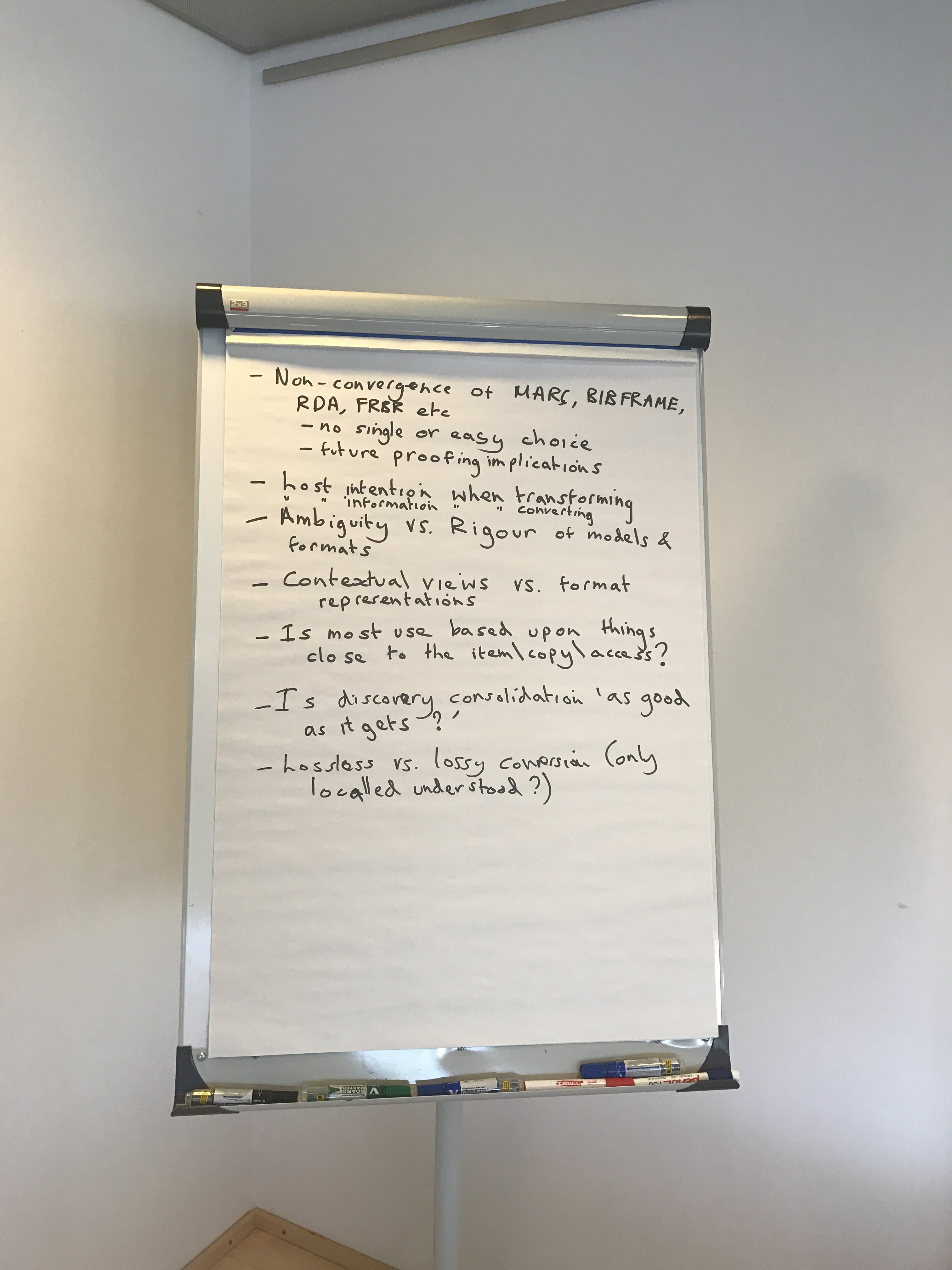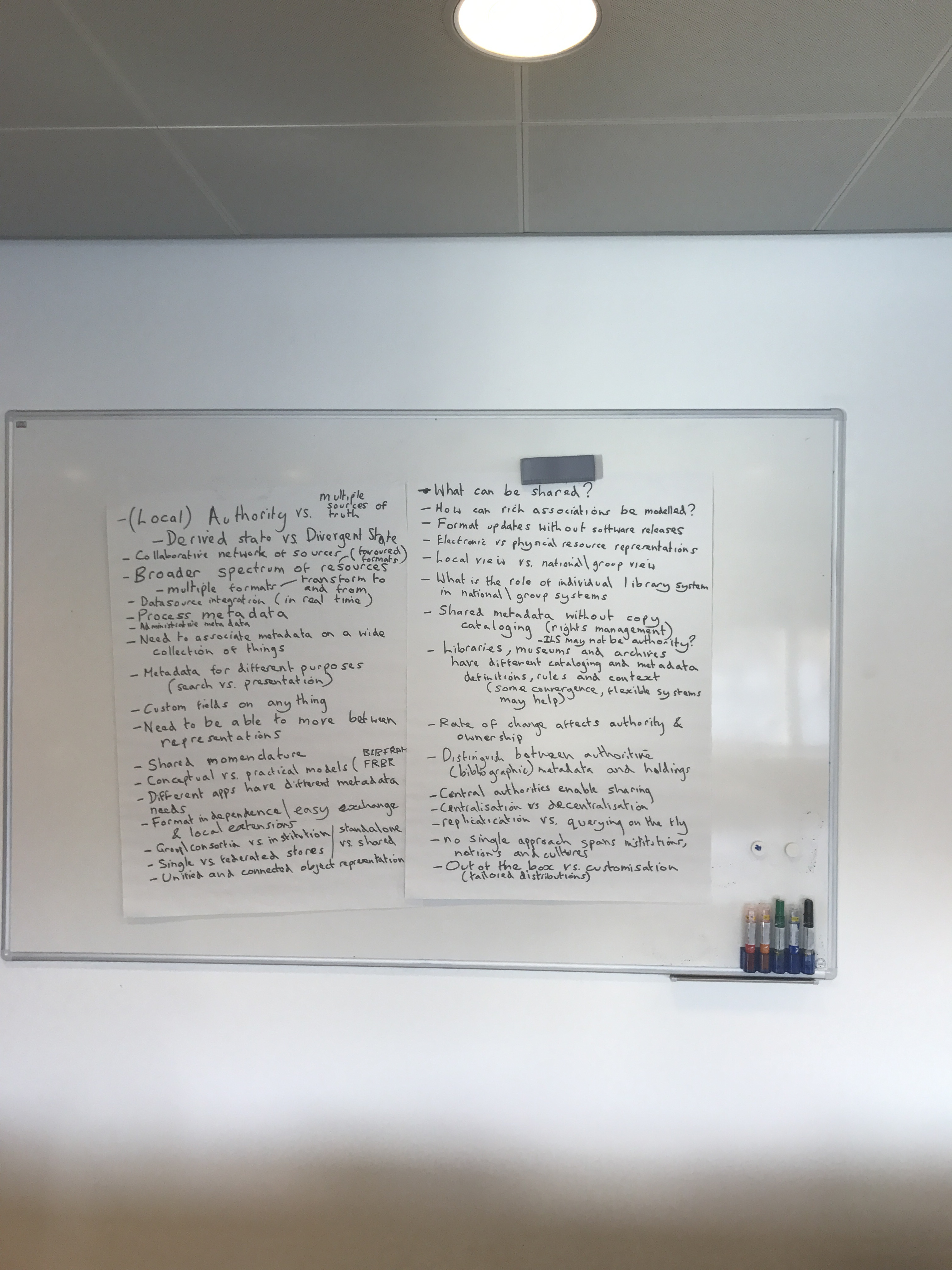In follow up to Peter’s post, here is a summary of the notes I took during the meeting. At the very bottom are photos of the raw notes that I wrote.
I look forward to any feedback, comments or discussion around the open questions.
Sharing, Location and Authority
Increased sharing across institutional boundaries and rates of change of metadata (e.g. in electronic resource package definitions) are affecting attitudes to authority and ownership and raising important questions about the role of an individual institution.
In a collaborative network of multiple metadata sources, how do we determine authoritative truth?
What is the role of individual institutions (particularly in a centralised consortial or national system) in curating this information?
What are the rights management implications when the metadata is shared rather than privately copied?
Intentional Representations
A broadening spectrum of resource types is putting pressure on the ability to support and move between a variety of metadata representations and formats.
What are the implications of the divergence and variety of formats, representations and models (e.g. MARC, BIBFRAME, RDA, FRBR etc) on managing this information in the future?
How can we minimise the difficulty and loss of intention when converting between representations or formats, either internally or exchanging externally?
What impact does that conversation have for formats and representations only understood locally within the institution?
What is a shared nomenclature for knowledge base and metadata concepts that we can agree upon?
How does this affect the ambiguity, rigour and commonality of our models, representations and formats?
Relationships
Metadata is being used for an increasing variety of purposes (e.g. administrative, process, search or presentation) and in a variety of contexts (e.g. libraries, museums and archives).
How do we associate a variety of different metadata representations with different records?
What does a unified and rich model of metadata associations look like?
Choice, Configuration and Integration
No single approach to metadata and knowledge management or choice of systems, spans institutions, groups, nations or cultures.
How do we support both centralised (e.g. consortia or national) and decentralised systems for managing metadata?
How do we support standalone installations, shared metadata and external systems in a coherent and flexible way, whilst also providing tailored out of the box functionality?
What are the different kinds of views or purposes of metadata across these contexts?
What are the options and consequences of different styles of integration (e.g. replication vs querying upon request) between a variety of systems serving different purposes and contexts?





